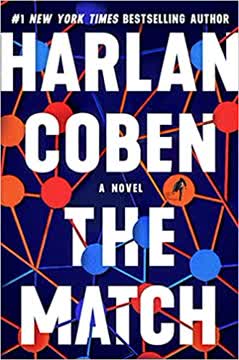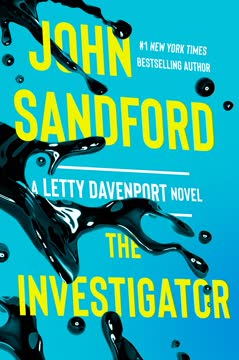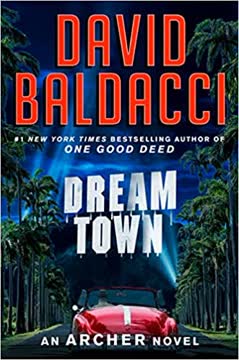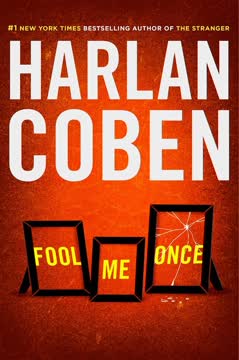Plot Summary
Lost Boy in Woods
Wilde, a man in his early forties, has no memory of his parents or origins. As a child, he was found living alone in the Ramapo Mountains, New Jersey, surviving by his wits. The media dubbed him "The Boy from the Woods," and he became a local legend. Despite being placed with a foster family, no one ever came forward to claim him, and his past remained a blank slate. Wilde grew up haunted by fragmented memories—flashes of a red banister, a mustached man's portrait, and a woman's scream. These images, and his abandonment, shaped his solitary, self-reliant nature.
DNA Unveils Secrets
Decades later, Wilde submits his DNA to an online genealogy database, hoping for answers. He's matched with a second cousin, "PB," and, more shockingly, a man named Daniel Carter—his probable biological father. Wilde's search for identity is reignited, but Carter's abrupt deletion of his profile raises suspicions. Wilde, with the help of his surrogate mother-figure, attorney Hester Crimstein, tracks Carter to Nevada. The encounter is awkward and inconclusive: Carter claims ignorance of Wilde's existence, theorizing Wilde was conceived during a one-night stand in Europe. The meeting leaves Wilde with more questions than answers, and a sense that the truth is still out of reach.
Father Found, Truths Hidden
Wilde's meeting with Daniel Carter is emotionally fraught. Carter, now a family man, is shocked by Wilde's appearance and insists he never knew of Wilde's birth. He recounts a summer of flings while stationed in Europe, unable to recall the woman who might be Wilde's mother. Carter's reluctance to disrupt his current family and his evasiveness about the past frustrate Wilde. The encounter underscores Wilde's lifelong sense of disconnection and the futility of seeking closure from people unwilling to face the past.
The Boomerang Collective
Parallel to Wilde's journey, a secretive online group called Boomerang, led by Chris Taylor (formerly "The Stranger"), targets online trolls and abusers. Members, masked by animal avatars, vote on cases of digital cruelty, meting out punishments ranging from financial ruin to total destruction. Their motto: "Karma is like a boomerang—what you give out comes back to you." When a grieving mother is harassed by a conspiracy troll, the group votes for a "Category 5" response, foreshadowing the escalation of their activities and the dangers of vigilante justice.
Cancel Culture's Victim
Peter Bennett, a reality TV winner, is Wilde's DNA match "PB." Once beloved as half of the "PB&J" couple, Peter is destroyed by a viral podcast: his sister-in-law Marnie accuses him of infidelity and sexual assault. The internet turns on him, and he's "canceled." Peter's desperate messages to Wilde go unanswered for months. As Wilde investigates, he discovers Peter's life has unraveled—his marriage, career, and reputation in ruins, and he's vanished after a cryptic social media post suggesting suicide.
The Reality Star's Fall
Wilde's search for Peter leads him through the toxic world of reality TV and social media. He learns that Peter's downfall was orchestrated by those closest to him, including his wife Jenn and Marnie, who may have fabricated or exaggerated their accusations for fame and personal gain. The relentless online harassment, amplified by professional trolls like Henry McAndrews, pushes Peter to the brink. Wilde uncovers a web of lies, manipulation, and betrayal, with Peter at its center—possibly dead, possibly in hiding.
Family Ties and Lies
Wilde discovers that Peter was adopted as a baby by the Bennett family, who concealed the truth for decades. Peter's "sister" Vicky is, in fact, his biological mother, a victim of rape by a predatory pastor. The family's move from Memphis to Pennsylvania was an attempt to escape scandal and start anew. DNA and Genealogy as Keys to Identity reveal that Peter and his "uncle" Silas are actually half-siblings, and that Wilde is related to them through their father. The revelation of these tangled relationships deepens the mystery of Wilde's own abandonment.
The Trolls' Deadly Game
As Wilde investigates, people connected to Peter's harassment begin turning up dead—shot execution-style. Henry McAndrews, the troll-for-hire, is found murdered. Soon after, FBI agent Katherine Frole (secretly "Panther" from Boomerang) and another troll, Martin Spirow, are also killed. The murders follow a pattern, suggesting a vigilante is targeting those who destroyed Peter. The Boomerang group, realizing one of their own may be involved, faces its own crisis as members are exposed and hunted.
The Search for Peter
Wilde, aided by Hester, Rola (his foster sister), and Peter's family, races to find Peter—dead or alive. They uncover evidence that Peter, devastated by betrayal and the revelation of his true parentage, may have committed suicide in French Polynesia. Yet inconsistencies remain: Peter's DNA accounts are deleted, and his last communications are ambiguous. Wilde's investigation is hampered by law enforcement, who suspect him in the murders, and by the shadowy activities of Boomerang and its rogue members.
Murdered Trolls, Rising Stakes
The narrative shifts to the killer's perspective: Vicky, Peter's biological mother, is revealed as the vigilante. Traumatized by her past and enraged by the destruction of her son, she murders McAndrews, Frole, Spirow, and Marnie (who is found wrapped in plastic in a storage unit). Vicky's actions are both revenge and a twisted attempt at justice. She confesses to Wilde, explaining her motives and the pain that drove her to kill. Her confession brings closure to the murder investigation but leaves emotional wreckage in its wake.
Sister or Mother?
Wilde confronts Vicky with the evidence: DNA, timelines, and family secrets. Vicky admits she is Peter's mother, not his sister, and recounts her abuse at the hands of Pastor Paul, Peter's biological father. The family's elaborate deception was meant to protect Vicky and Peter, but it ultimately contributed to Peter's sense of alienation and despair. The revelation helps Wilde understand the generational trauma that shaped both his and Peter's lives.
The Past Resurfaces
Wilde's search for his own mother leads him to a dramatic confrontation with Sofia Carter, Daniel's wife. Sofia reveals that she is Wilde's mother, and that his abandonment was an act of desperate protection. Trapped in an abusive relationship with a powerful criminal, Sofia fled with Wilde, hiding him in a closet while she led their pursuers away. Rescued by witness protection, she was forced to leave Wilde behind, believing it was the only way to save him. The red banister, the mustached man, and the screams—Wilde's fragmented memories—are finally explained.
The Truth About Jenn
Wilde uncovers that Jenn, Peter's wife, orchestrated his downfall to save her own career. Facing declining fame, Jenn fabricated evidence, manipulated Marnie, and hired trolls to destroy Peter's reputation. Her actions, rationalized as "playing the game," are exposed, but the damage is irreversible. Peter's innocence is posthumously revealed, but the cost is immense—lives lost, families shattered, and the corrosive effects of fame laid bare.
The Serial Killer Revealed
Vicky, consumed by grief and rage, confesses to the murders. She explains her transformation from victim to avenger, her compulsion to kill those who destroyed her son, and her belief that she was delivering justice. Wilde, recognizing the depth of her pain, ensures she is taken into custody without further violence. The cycle of trauma and revenge is brought to an end, but not without lingering questions about justice and accountability.
Wilde's Origins Unveiled
In a poignant reunion, Sofia Carter tells Wilde the full story of his abandonment and her sacrifices. Wilde learns that his survival was not the result of neglect, but of a mother's desperate love. The knowledge brings him peace and a sense of belonging he has never known. Sofia, too, finds closure, though both acknowledge the scars of their past. Wilde's journey from lost boy to man is complete.
The Price of Fame
The novel's final act explores the aftermath: Peter's "resurrection" as he posts a video revealing he is alive, the public's fickle response, and the ongoing debates about blame and forgiveness. The story critiques the reality TV machine, the cruelty of online mobs, and the way fame distorts truth and relationships. Wilde, having found his family and his place in the world, chooses love and connection over isolation.
Justice, Forgiveness, and Family
With the mysteries solved and the killers brought to justice, Wilde embraces his found family—Laila, Hester, Matthew, and his newly discovered relatives. He proposes to Laila, seeking her family's blessing, and looks forward to a future built on honesty and love. The novel ends with a sense of hard-won peace, the acknowledgment of pain and loss, and the hope that forgiveness and connection can overcome even the deepest wounds.
Characters
Wilde
Wilde is the protagonist, a man whose childhood abandonment in the woods left him with deep psychological scars and a lifelong sense of alienation. Raised by foster parents, he is resourceful, solitary, and emotionally guarded. His quest to uncover his origins is both a search for family and a struggle to reconcile his traumatic past. Wilde's relationships—with Hester, Laila, Matthew, and his newfound relatives—reveal his capacity for loyalty, love, and sacrifice, even as he battles his instinct to withdraw. His journey is one of self-discovery, forgiveness, and the acceptance of both pain and connection.
Hester Crimstein
Hester is a renowned defense attorney, television personality, and Wilde's surrogate mother. Sharp-tongued, fiercely loyal, and deeply principled, she serves as Wilde's moral compass and emotional anchor. Hester's own losses—her son David's death, her husband's passing—inform her empathy and resilience. Her relationship with Wilde is complex: part mentor, part mother, part friend. Hester's pursuit of justice, both in the courtroom and in Wilde's life, is unwavering, and her willingness to confront uncomfortable truths drives much of the novel's emotional depth.
Peter Bennett
Peter is Wilde's second cousin, a former reality TV winner whose life unravels after a public scandal. Sensitive, naive, and ill-equipped for the brutality of fame, Peter is betrayed by those closest to him and hounded by online mobs. His adoption, concealed by his family, adds to his sense of displacement. Peter's desperate search for identity and vindication mirrors Wilde's own journey. His apparent suicide, later revealed to be a possible escape, is the tragic fulcrum of the novel's exploration of fame, truth, and forgiveness.
Vicky Chiba
Vicky is Peter's biological mother, though she poses as his sister for most of his life. A survivor of rape and familial betrayal, Vicky's trauma shapes her actions—first as a protector, then as a vigilante killer. Her transformation from victim to avenger is both horrifying and sympathetic, a study in the corrosive effects of pain and the limits of justice. Vicky's confession to Wilde is a moment of catharsis, exposing the generational wounds at the heart of the story.
Daniel Carter
Daniel is Wilde's biological father, a man whose past is shrouded in secrecy and protected by witness relocation. His initial denial and evasiveness frustrate Wilde, but the truth—his love for Wilde's mother, his efforts to protect his family—emerges in the end. Daniel's inability to face the past is both a flaw and a survival mechanism, and his eventual (if limited) reconciliation with Wilde is a testament to the power of truth and forgiveness.
Sofia Carter
Sofia is Wilde's mother, a woman who endured abuse, captivity, and impossible choices. Her abandonment of Wilde was an act of desperate love, a bid to save him from a violent fate. Sofia's reunion with Wilde is the emotional climax of the novel, offering both characters a measure of peace and understanding. Her story is one of sacrifice, resilience, and the enduring bonds of family.
Chris Taylor ("The Stranger"/Lion)
Chris is the founder of Boomerang, a secretive group targeting online abusers. Once a crusader for truth, he is now wary of the unintended consequences of vigilante justice. Chris's efforts to stop the rogue killer and his alliance with Wilde reflect his desire for redemption and his recognition of the limits of his own power. His character embodies the novel's themes of justice, accountability, and the dangers of unchecked retribution.
Laila
Laila is David's widow, Matthew's mother, and Wilde's complicated love interest. Intelligent, independent, and emotionally scarred, Laila navigates grief, motherhood, and the challenges of loving a man as damaged as Wilde. Her insistence on honesty and boundaries pushes Wilde toward growth and connection. Laila's journey is one of healing, self-acceptance, and the courage to embrace love on her own terms.
Matthew
Matthew is Wilde's godson, Hester's grandson, and the living link to David. Bright, empathetic, and increasingly mature, Matthew challenges Wilde to confront his fears and embrace vulnerability. His relationship with Wilde is both a source of comfort and a catalyst for change, embodying the hope that the next generation can break the cycles of pain and isolation.
Rola Naser
Rola is Wilde's foster sister, a skilled investigator and loyal ally. Her resourcefulness, tenacity, and emotional intelligence make her indispensable in the search for Peter and the unraveling of Wilde's past. Rola's own experiences as a foster child inform her empathy and her commitment to uncovering the truth, no matter how painful.
Plot Devices
DNA and Genealogy as Keys to Identity
The novel's central plot device is the use of online DNA databases to unravel family secrets, solve mysteries, and connect characters across generations. DNA matches serve as both literal and metaphorical keys, unlocking not only the truth about Wilde's origins and Peter's parentage, but also the hidden traumas and betrayals that shape their lives. The technology is both a tool for self-discovery and a catalyst for chaos, as secrets long buried are forced into the light.
Multiple Interwoven Mysteries
Coben structures the novel as a series of interlocking mysteries: Wilde's search for his parents, Peter's disappearance, the murders of online trolls, and the unraveling of reality TV scandals. Each thread is connected by themes of identity, betrayal, and the search for justice. The narrative shifts between perspectives—Wilde, Vicky, Chris, Hester—using foreshadowing, red herrings, and misdirection to maintain suspense and deepen character development.
Vigilante Justice and Moral Ambiguity
The Boomerang collective embodies the dangers and temptations of vigilante justice in the digital age. Their secretive operations, anonymous punishments, and eventual loss of control serve as both a critique and a warning: the desire for retribution can easily become a force for destruction. The novel uses Boomerang to explore questions of accountability, the limits of law, and the consequences of taking justice into one's own hands.
The Destructive Power of Fame and Social Media
The rise and fall of Peter Bennett, and the roles played by Jenn, Marnie, and the online mob, illustrate the corrosive effects of fame, the fickleness of public opinion, and the dangers of cancel culture. Social media is depicted as both a stage and a battlefield, where truth is malleable and reputations are destroyed with a click. The novel uses these plot devices to interrogate the nature of celebrity, the hunger for attention, and the human cost of digital cruelty.
Trauma, Memory, and Healing
Wilde's journey is shaped by his fragmented, traumatic memories—images and sounds that haunt him and drive his search for answers. The novel uses these memories as both clues and symbols, representing the ways in which trauma distorts perception and shapes identity. The eventual reconciliation with his mother, and the understanding of her sacrifices, provide the emotional resolution to his lifelong quest.
Analysis
The Match is a gripping, multi-layered thriller that uses the tools of modern technology—DNA databases, social media, and online vigilantism—to explore timeless questions of identity, justice, and forgiveness. Harlan Coben weaves together personal trauma, family secrets, and the dark side of fame to create a narrative that is both propulsive and deeply human. The novel interrogates the costs of seeking truth, the dangers of unchecked retribution, and the ways in which our hunger for connection can both heal and destroy. Ultimately, The Match is a story about the power of forgiveness, the necessity of facing the past, and the hope that, even after the deepest wounds, love and belonging are still possible.
Last updated:
Review Summary
The Match is the second book in Harlan Coben's Wilde series, following the protagonist's search for his biological family through DNA testing. The novel explores themes of online trolling, reality TV, and vigilante justice. Readers praise Coben's engaging writing style, complex plot twists, and character development. While some found the story convoluted, most enjoyed the fast-paced thriller and its resolution to Wilde's mysterious past. The book can be read as a standalone, but familiarity with the first installment enhances the experience.
Similar Books
Download PDF
Download EPUB
.epub digital book format is ideal for reading ebooks on phones, tablets, and e-readers.





















